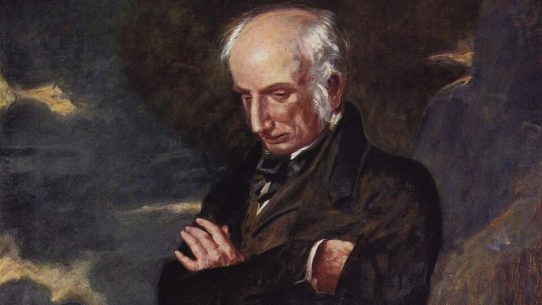On This Day I Complete My Thirty-Sixth Year
Explore Wordsworth’s “On This Day I Complete My Thirty-Sixth Year”, a meditation on age, reflection, nature, and ethical living.
Ode: Intimations of Immortality (Excerpt)
Explore Wordsworth’s “Ode: Intimations of Immortality”, a meditation on childhood, memory, and nature’s role in guiding the human spirit.
Lines Written in Early Spring
Explore Wordsworth’s “Lines Written in Early Spring”, a reflective poem on nature, human folly, and moral insight. Discover its meaning, themes, and beauty.
My Heart Leaps Up
Explore Wordsworth’s “My Heart Leaps Up”, a short poem celebrating the joy of nature, continuity from childhood to adulthood, and the enduring power of wonder.
Composed Upon Westminster Bridge, September 3, 1802
Wordsworth’s “Composed upon Westminster Bridge” reveals London’s dawn stillness — a rare moment of unity between nature, light, and human creation.
Michael
Wordsworth’s “Michael” tells the tragic story of a shepherd’s faith, family, and loss — a pastoral masterpiece on labor, love, and moral endurance.
Lines Composed a Few Miles Above Tintern Abbey
Wordsworth’s “Tintern Abbey” transforms remembered nature into moral vision — attention ripened by time becomes wisdom.
Daffodils (I Wandered Lonely as a Cloud)
A portable sunrise: Wordsworth’s daffodils show how remembered delight restores the heart in solitude.
The Solitary Reaper
A singer in a field teaches Wordsworth an ethics of listening — mystery honored, music carried inward as lasting solace.
The World Is Too Much With Us
A bracing sonnet against distraction and commerce — Wordsworth pleads for a restored capacity to see the world as sacred.
London, 1802
An urgent apostrophe to Milton — Wordsworth critiques national selfishness and calls for humble, star-like virtue.
William Wordsworth
William Wordsworth was an English Romantic poet whose reverence for nature and focus on emotion redefined the meaning of poetry.
